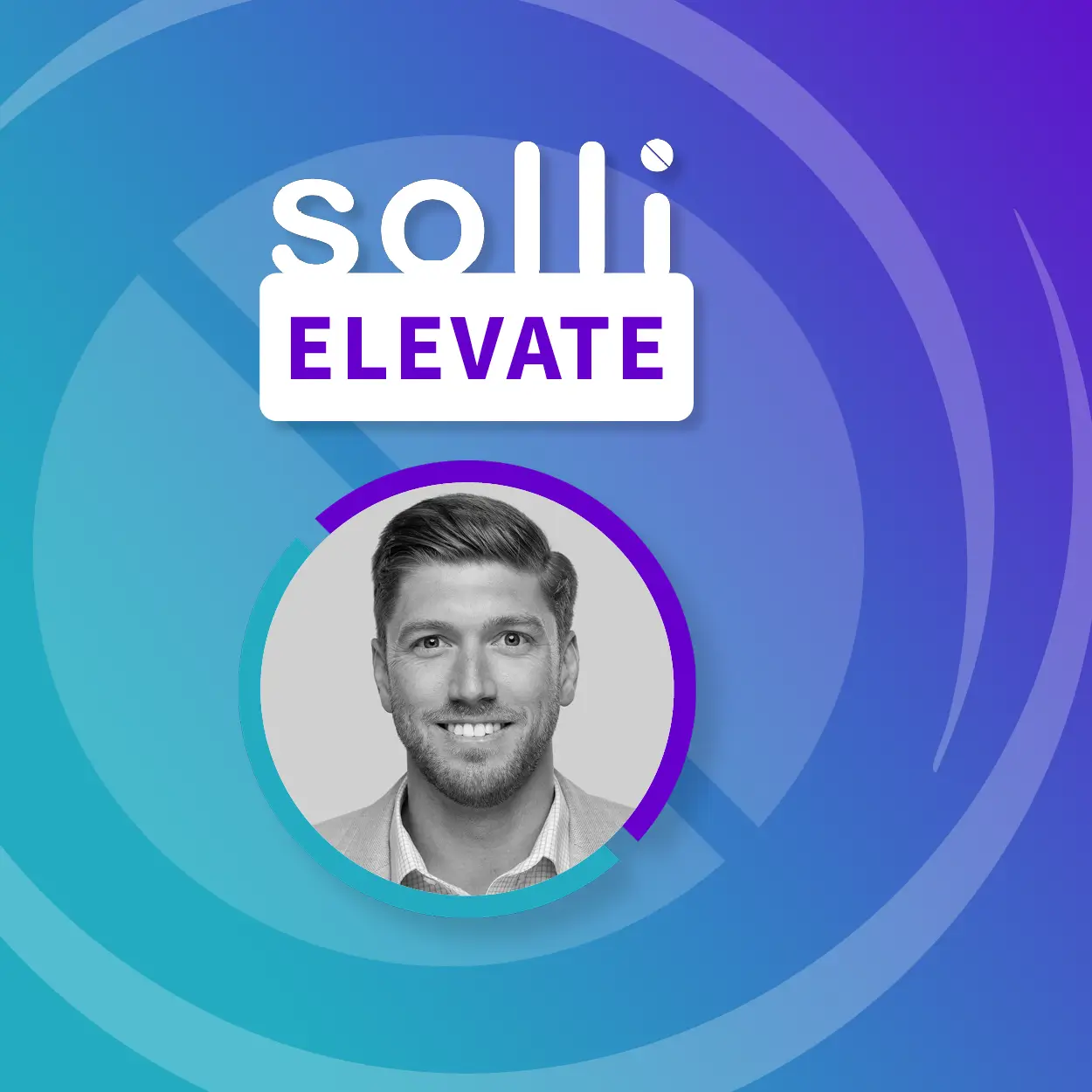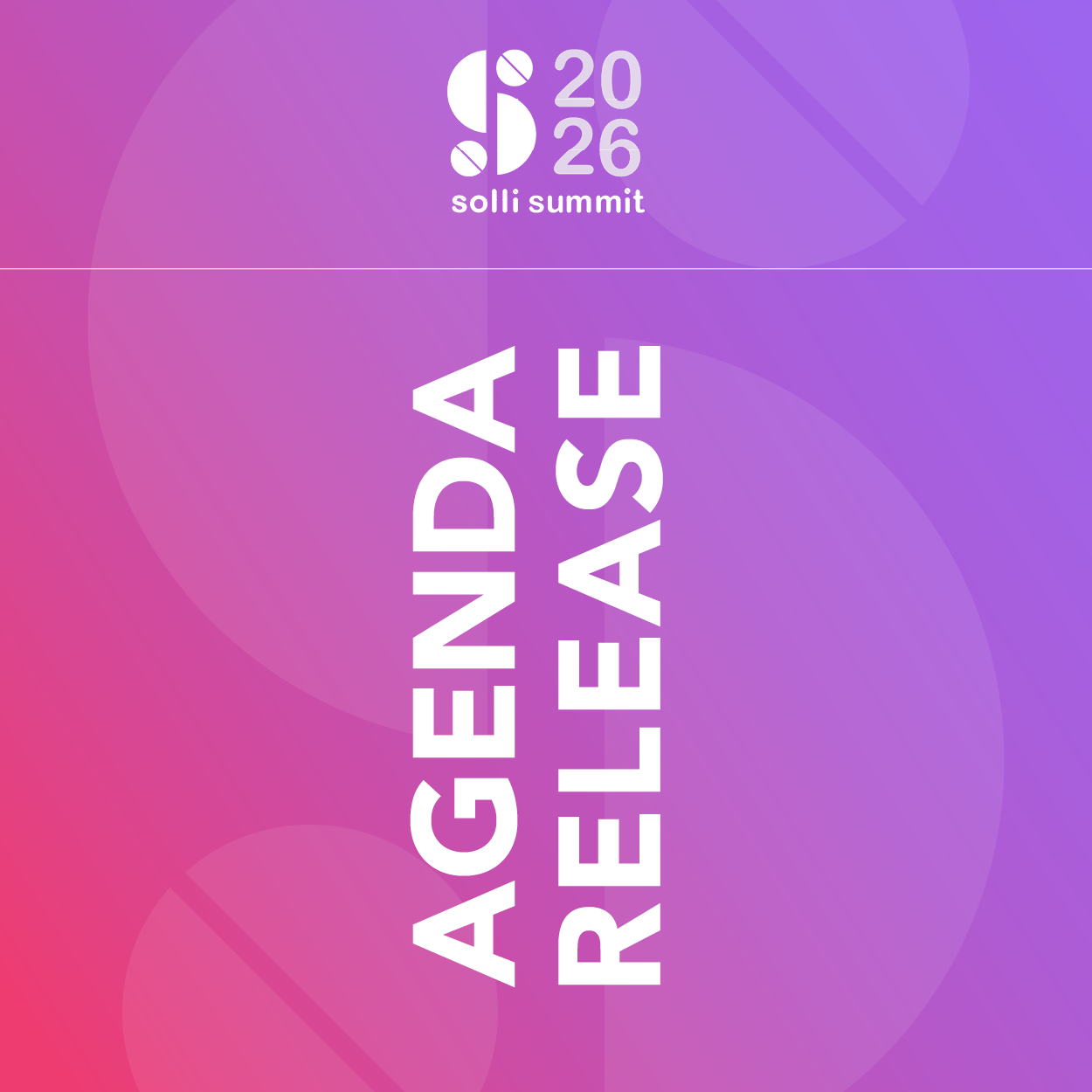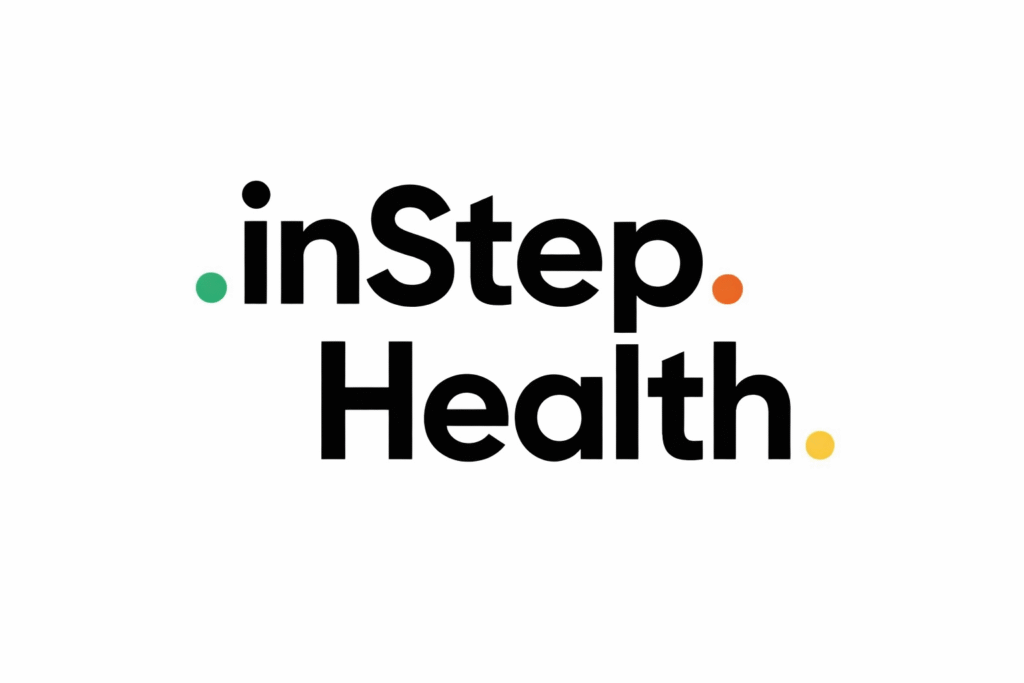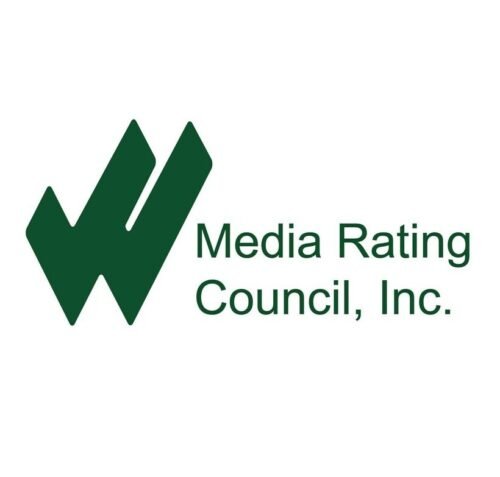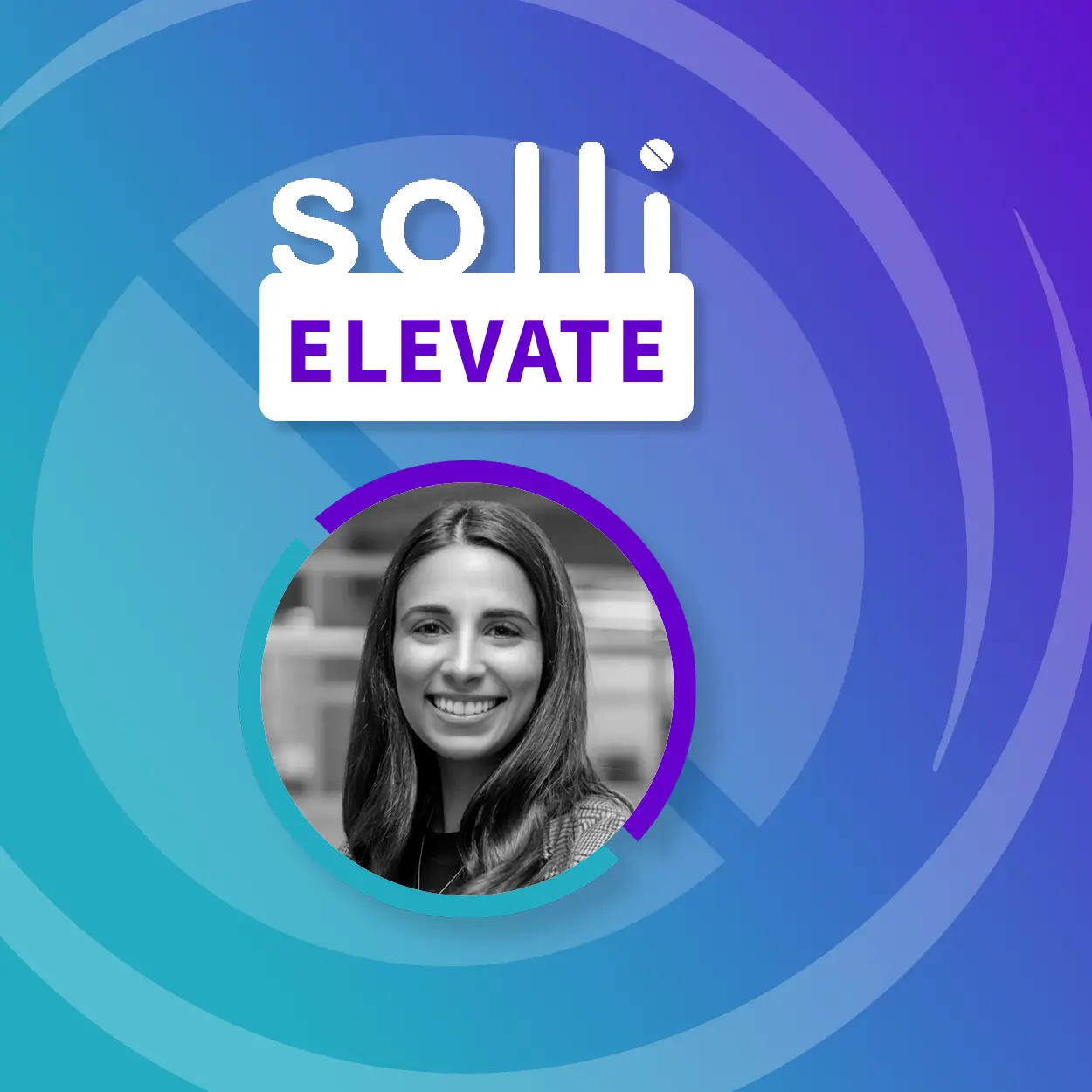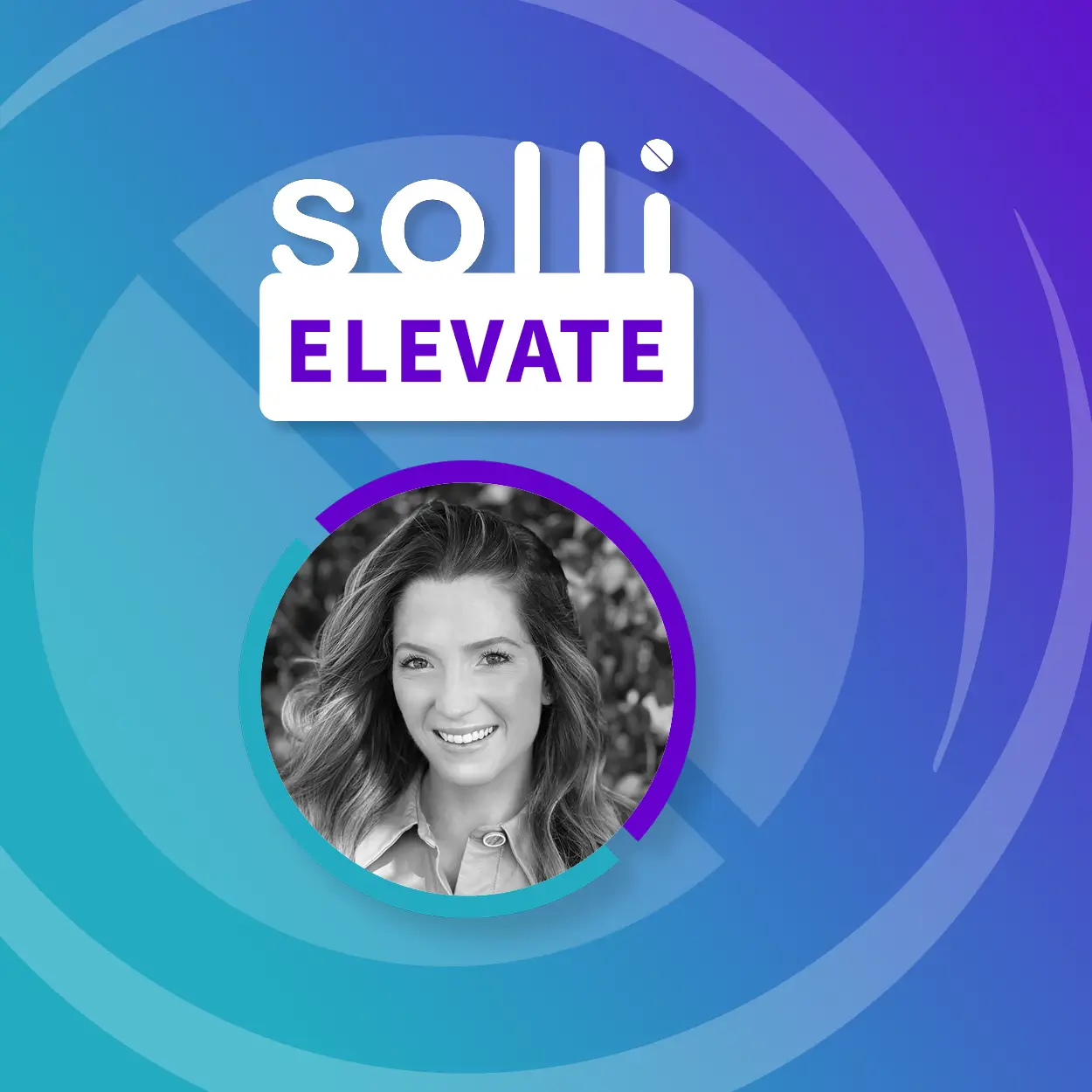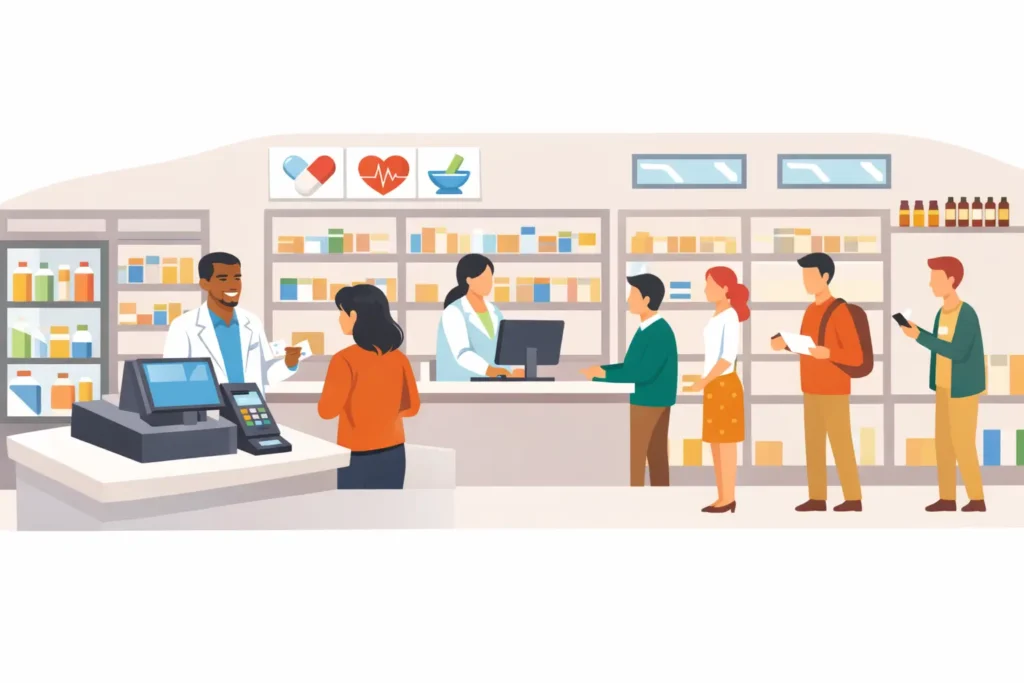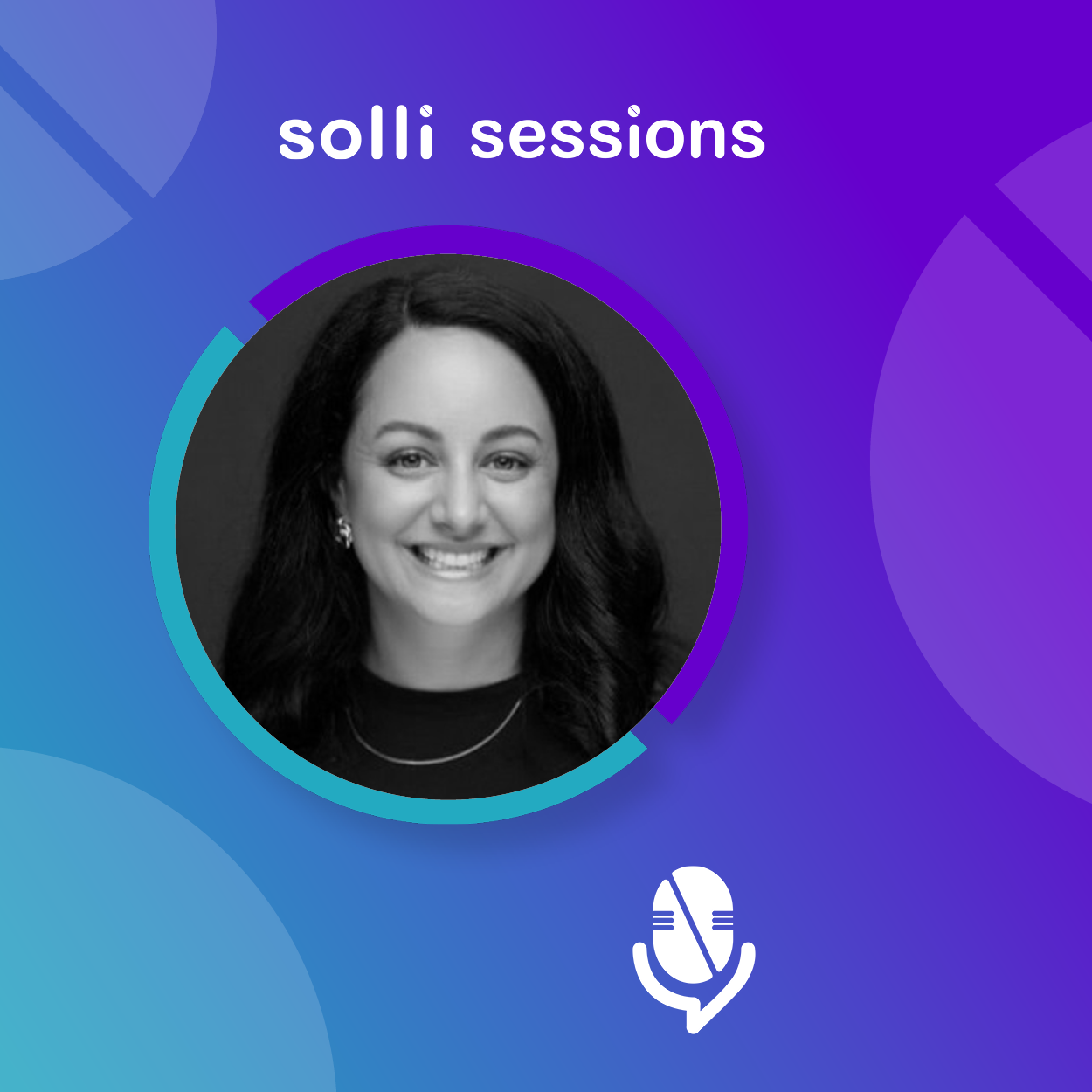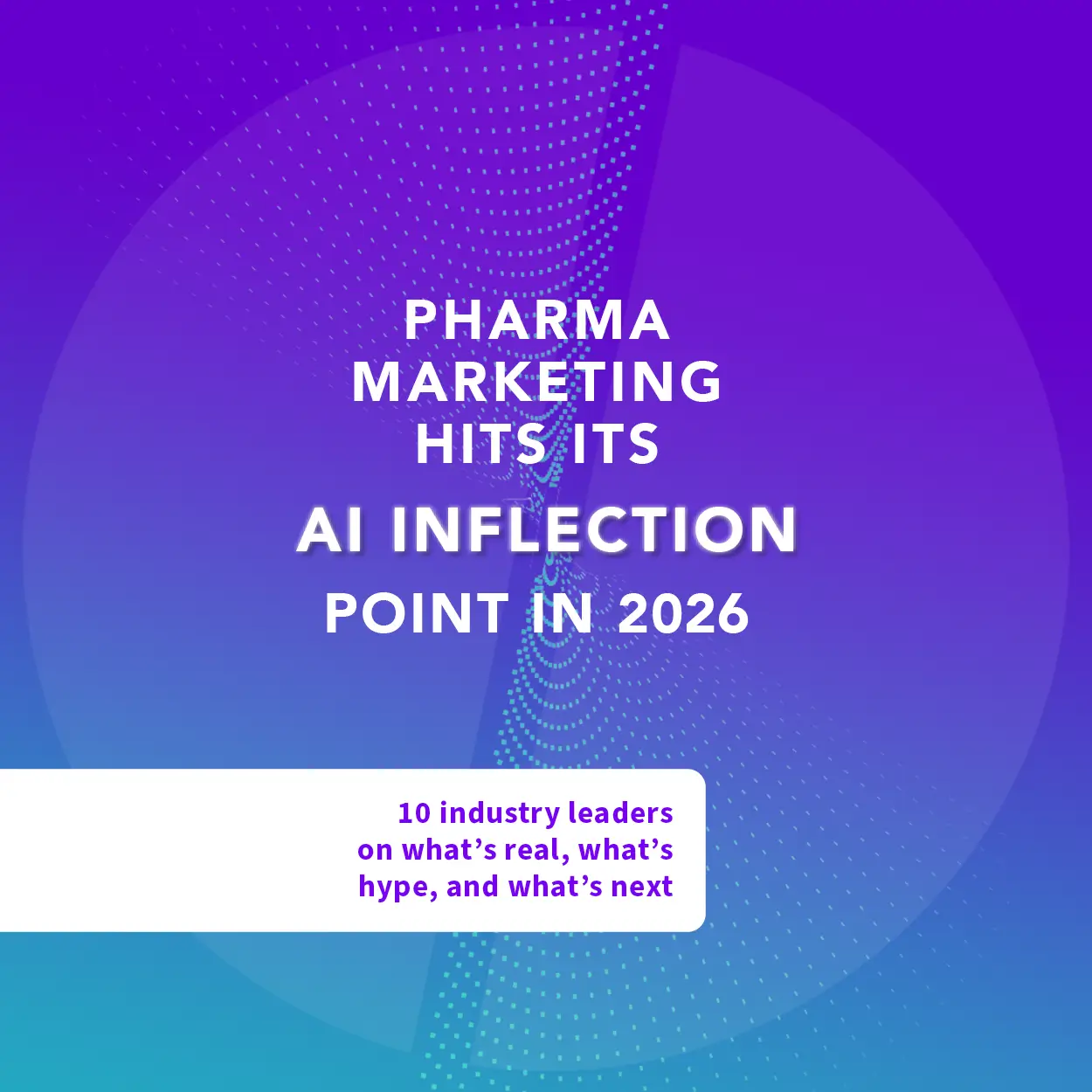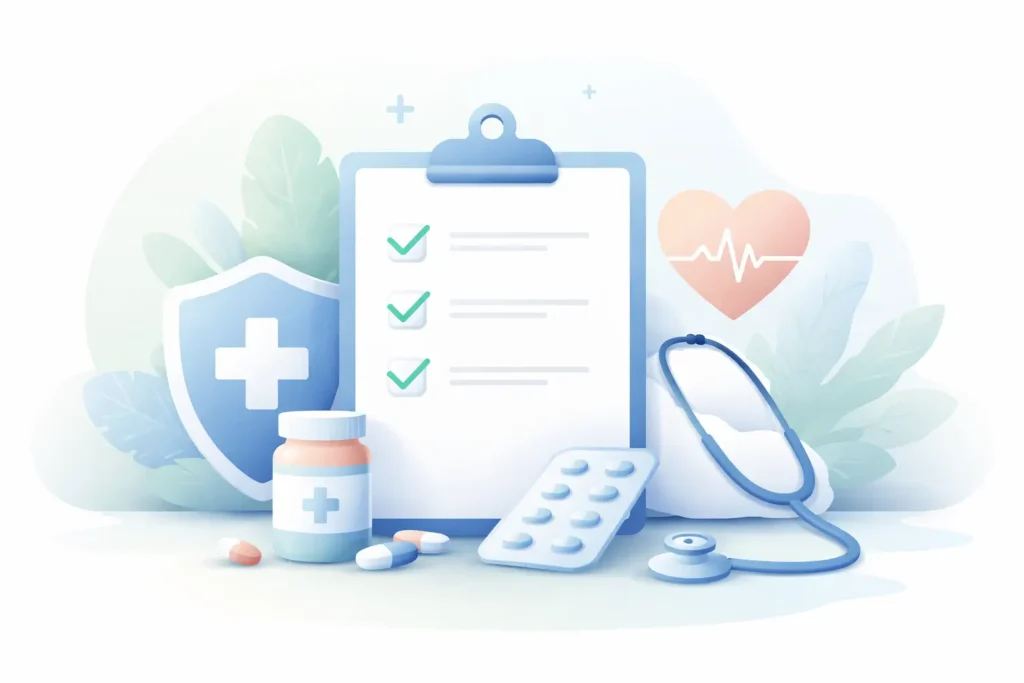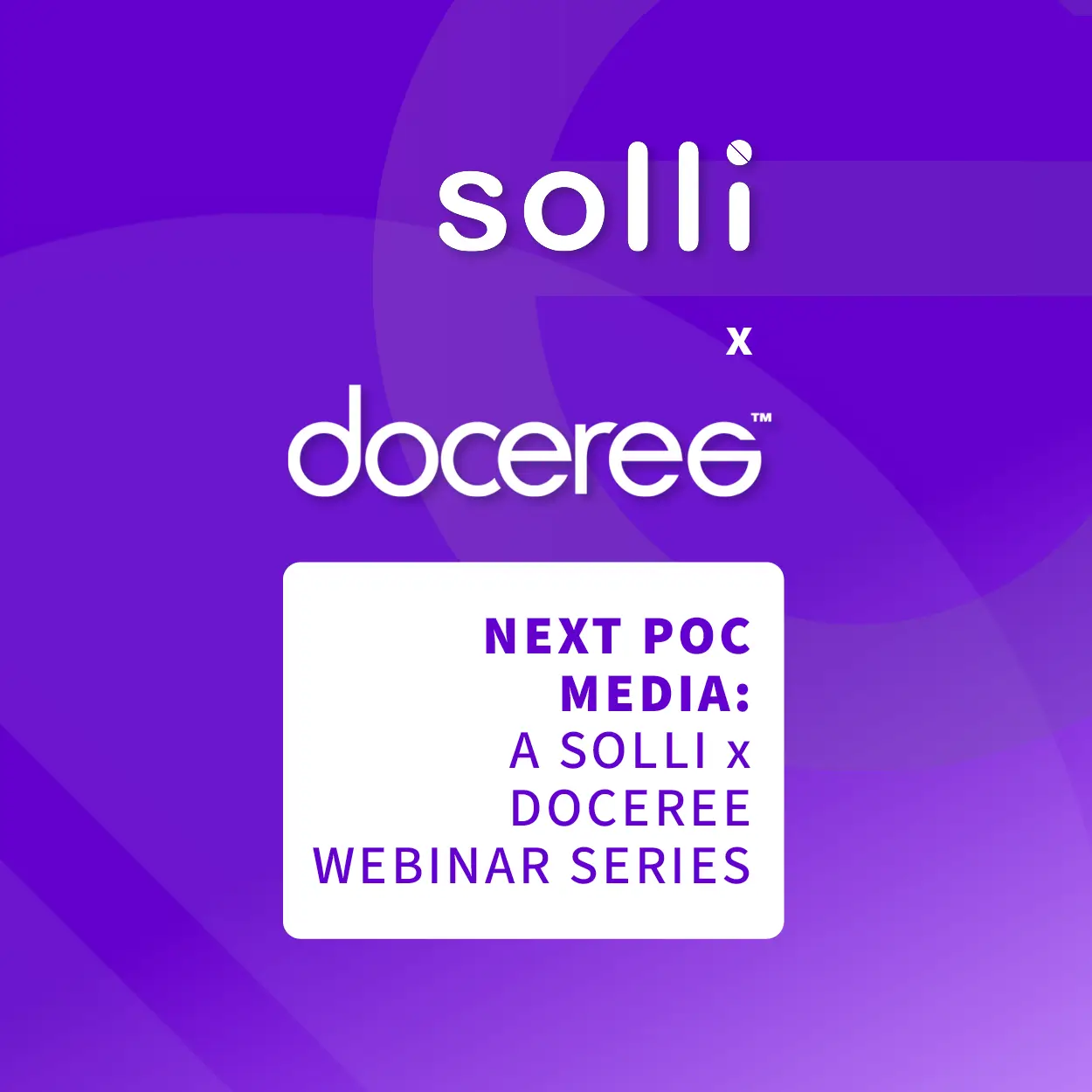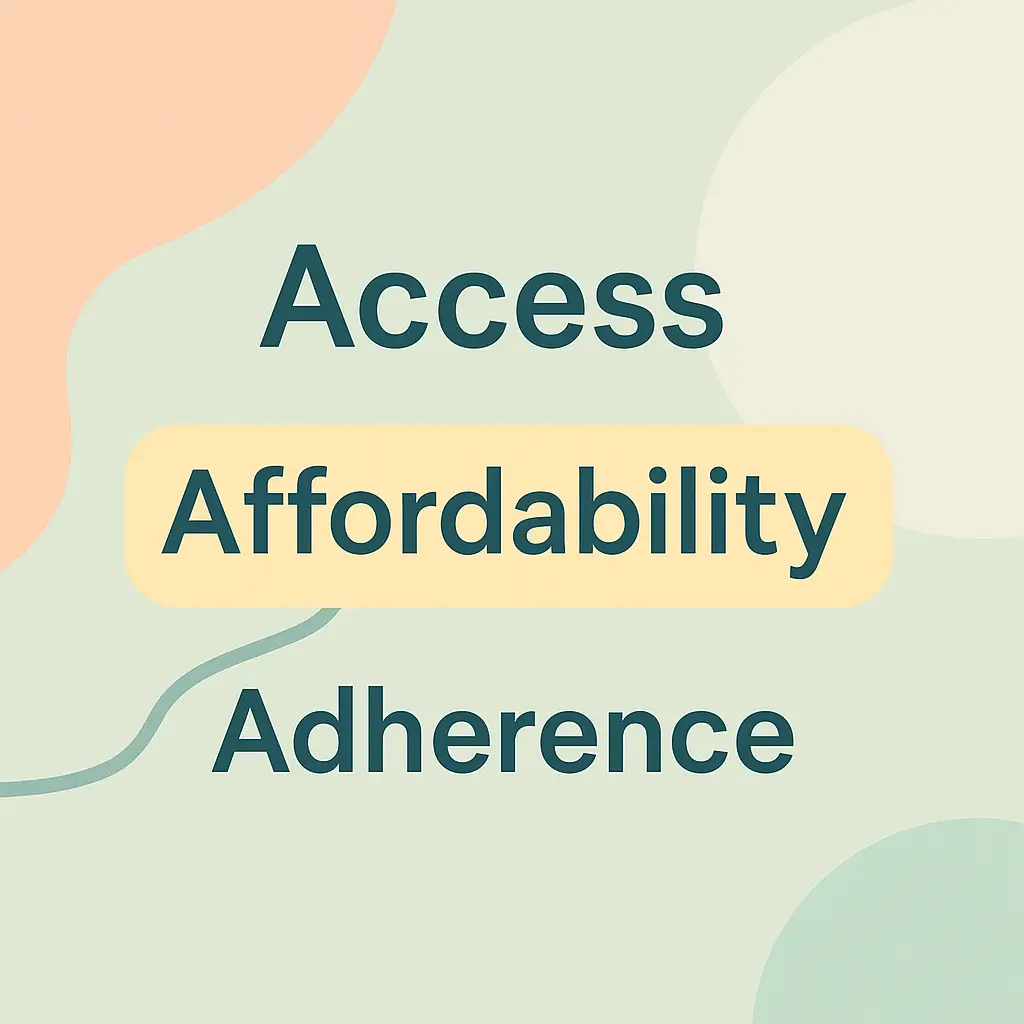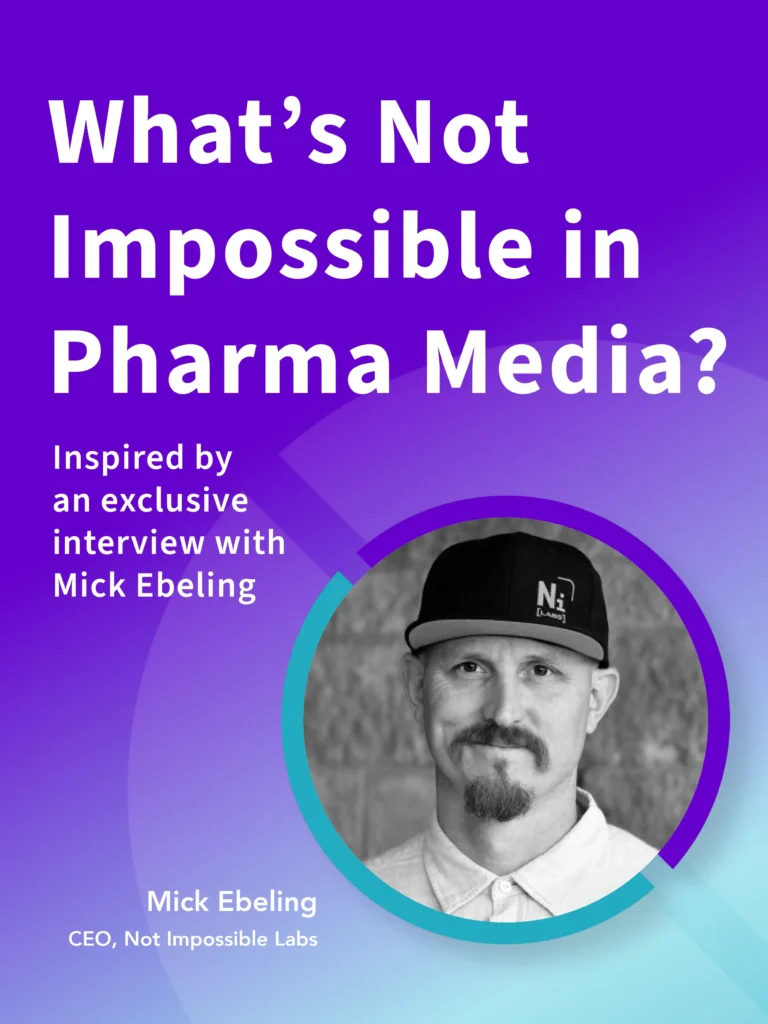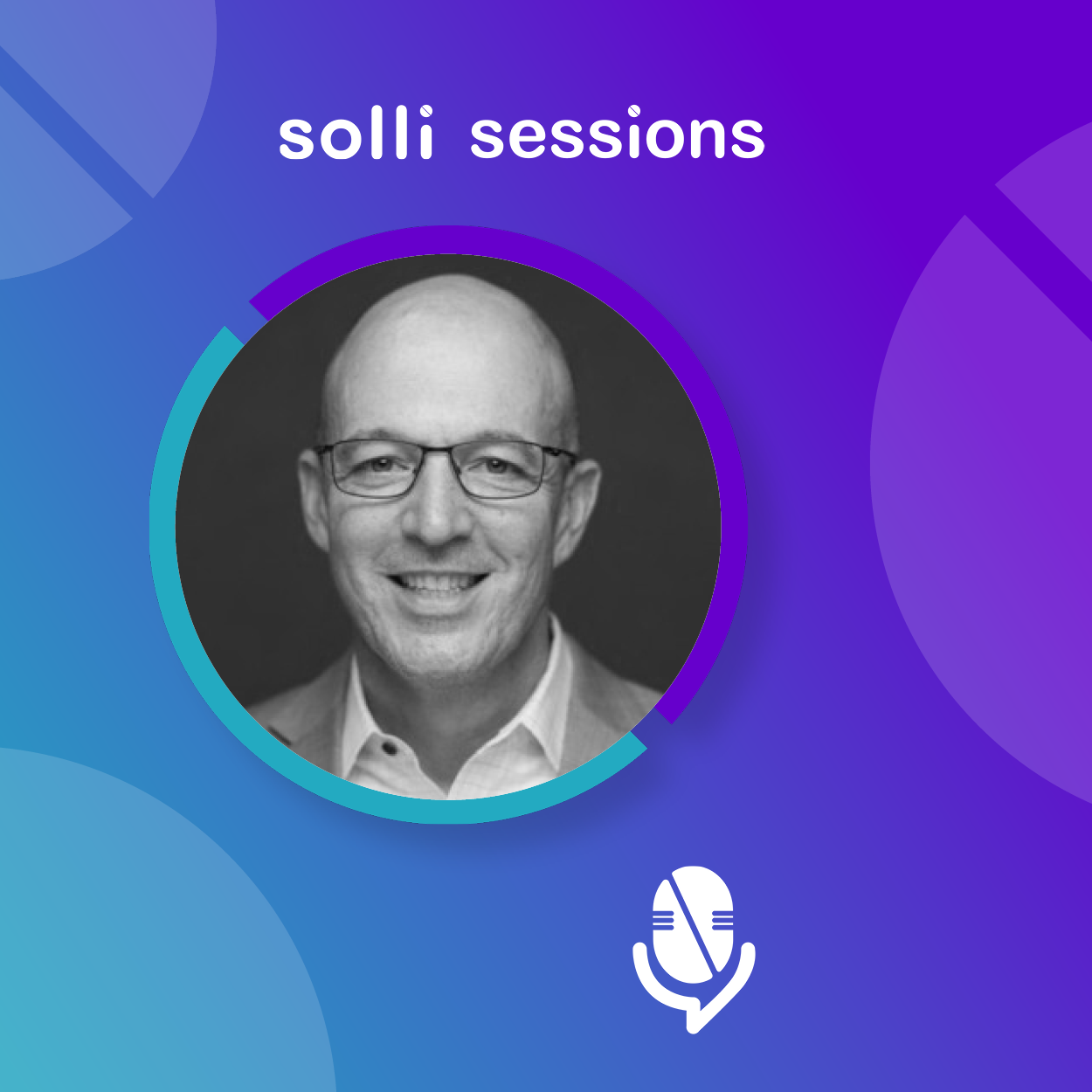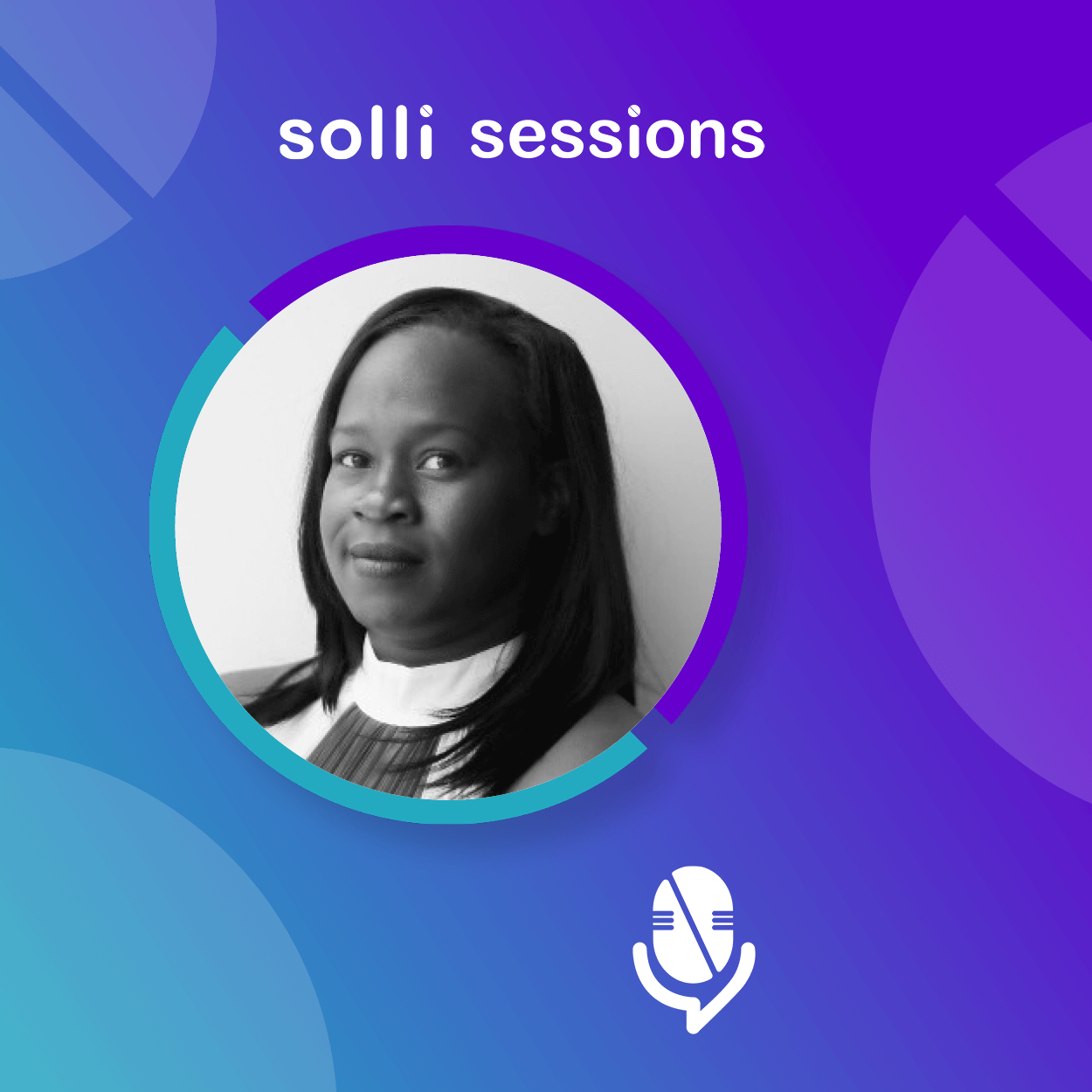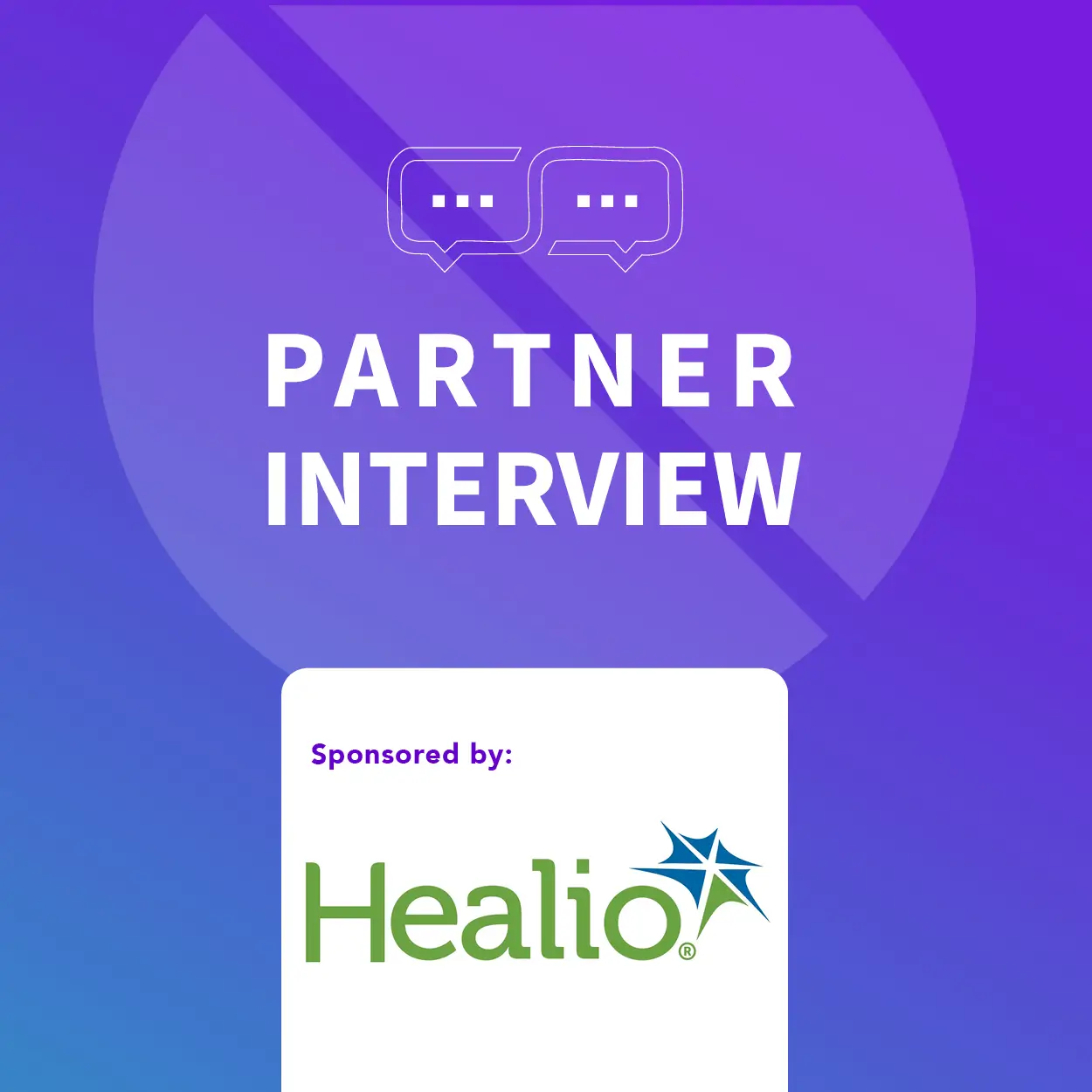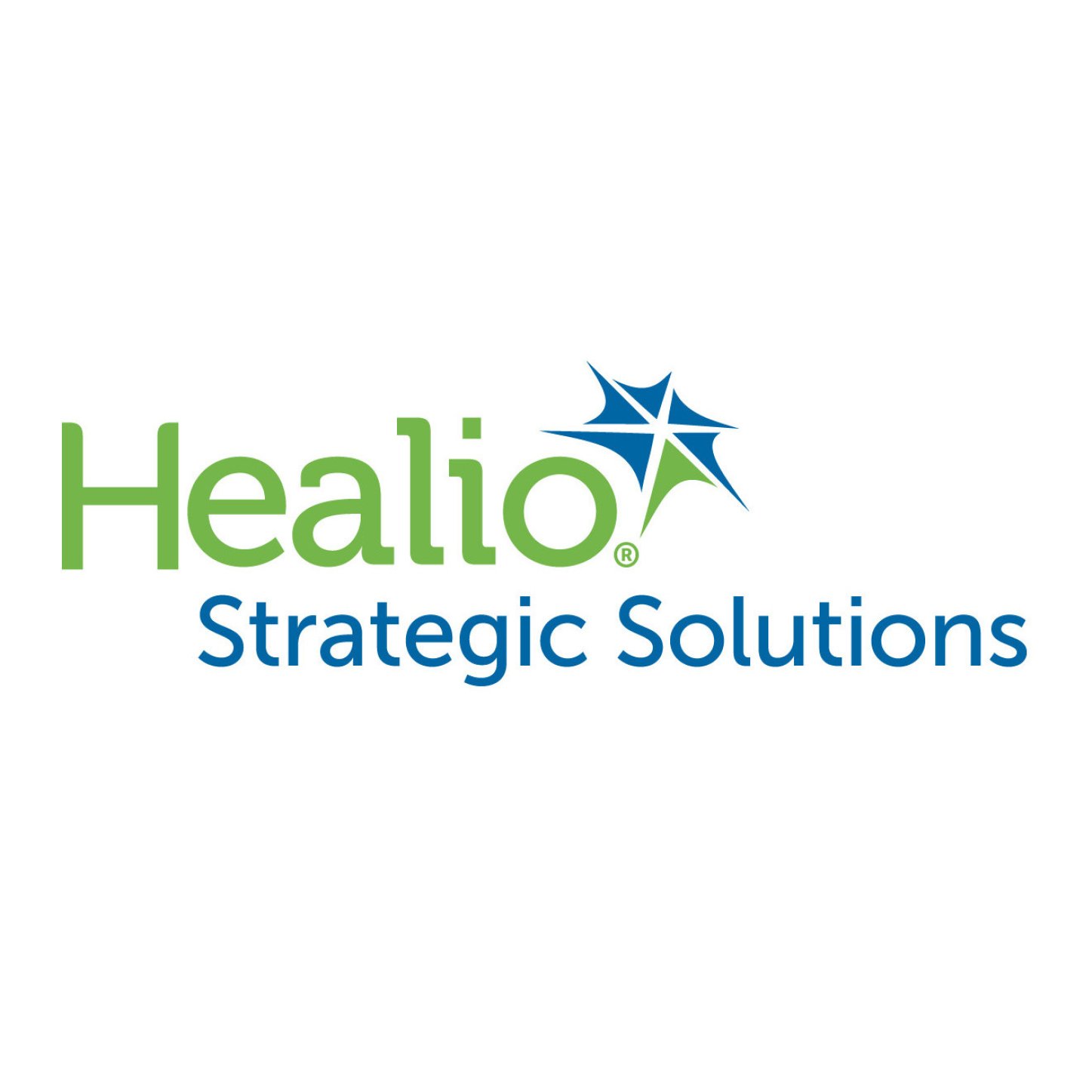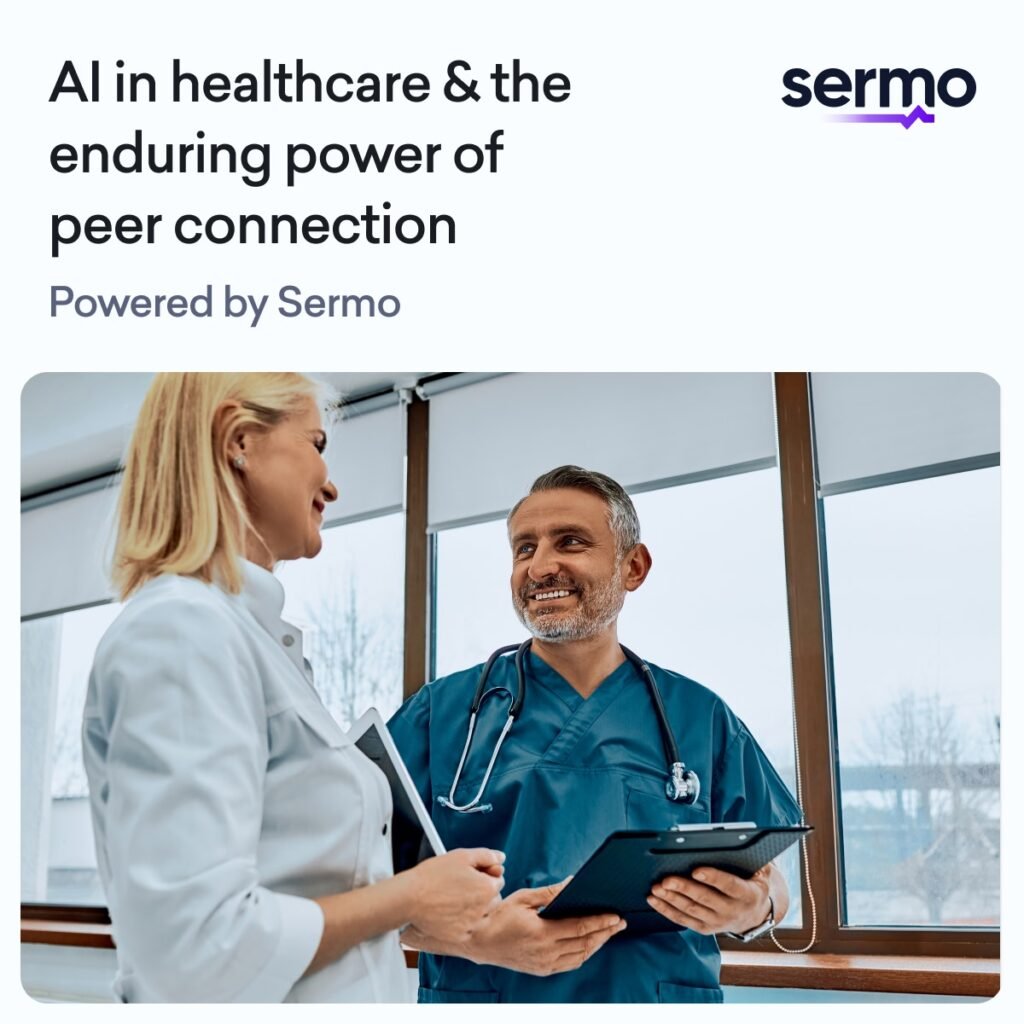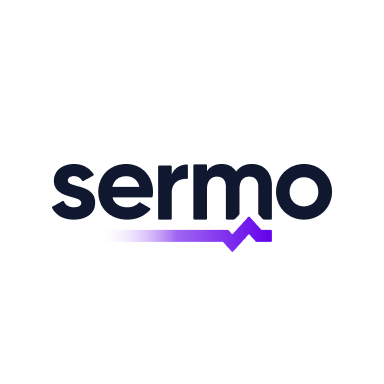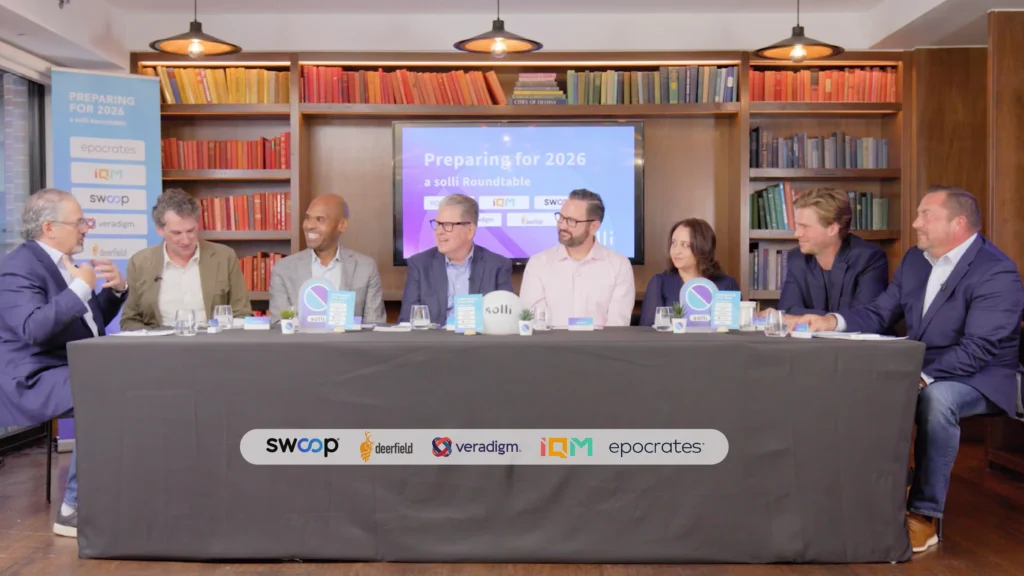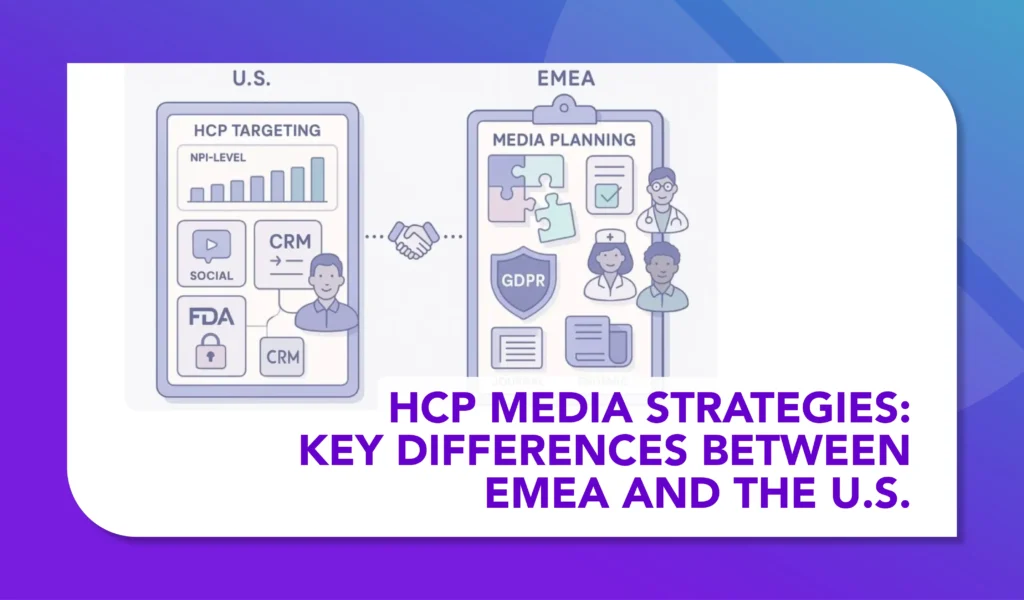Inside the Digital Doctor’s Lounge: Understanding How Physicians Connect & Collaborate Online
From busy public feeds to trusted, clinician-only spaces, doctors are redefining how and why professional dialogue and education happen online
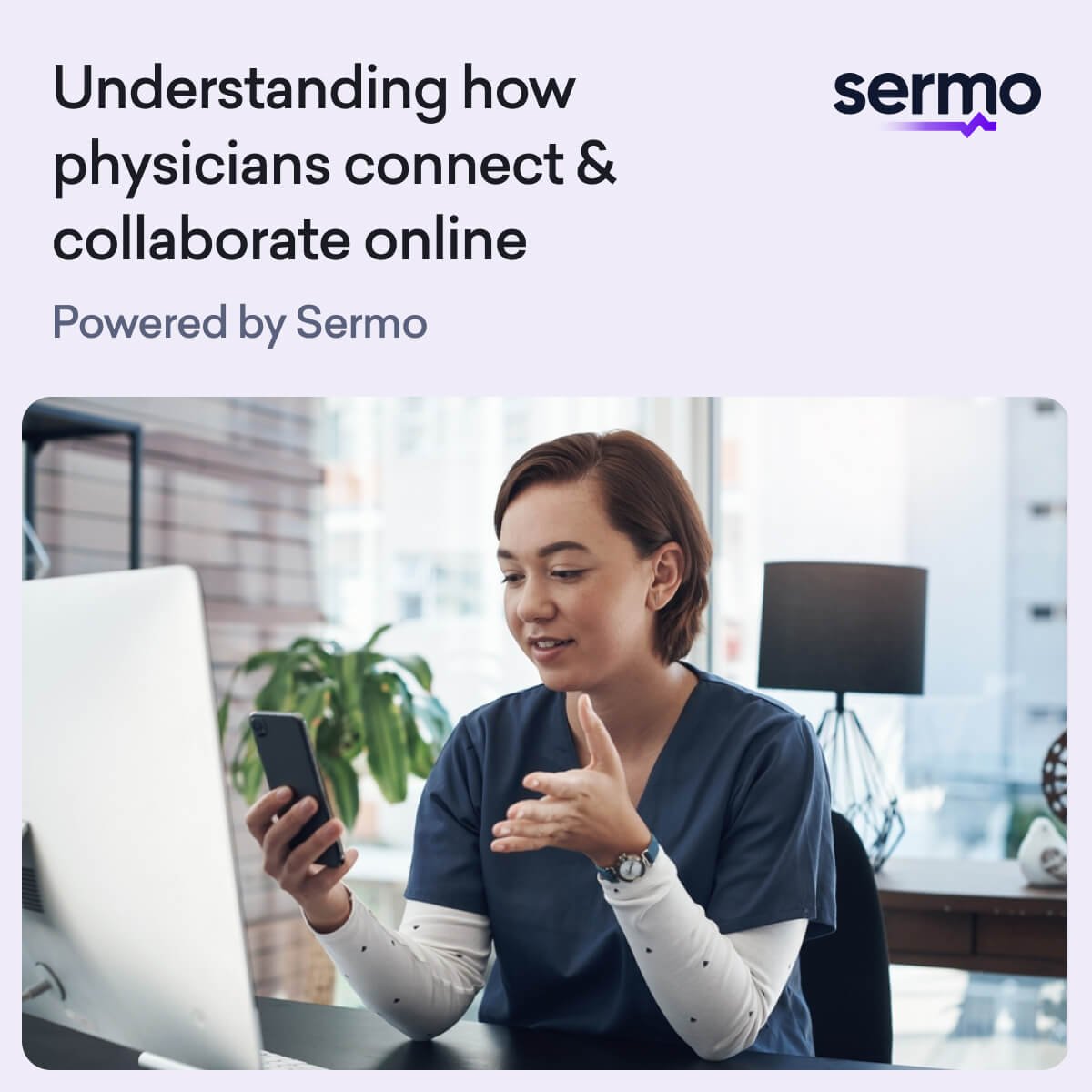
Social media has woven itself into the fabric of nearly every profession, and medicine is no exception. For healthcare professionals, these digital spaces offer unique opportunities for networking, knowledge sharing, and professional development. However, not all social platforms serve these purposes equally.
A recent Sermo survey of 115 physicians sheds light on where and how doctors are engaging online, revealing a significant trend: when it comes to professional engagement, doctors gravitate toward HCP-only platforms. The findings point to a broader shift in how physicians want to interact online – a preference for dedicated, trusted environments where clinical conversations can flourish without the noise and privacy concerns of open forums. As physicians navigate the digital landscape, their choices reflect a need for value, relevance, and a vetted peer community. This article explores the key findings from Sermo’s new study, examining why dedicated professional platforms are becoming the preferred digital gathering place for doctors today.
The Digital Divide: Public vs. Professional Platforms
Physicians today are active on a wide array of social media platforms for both personal and professional reasons. For personal use, familiar names like Instagram (58%) and Facebook (56%) dominate. However, the landscape changes when the purpose shifts from personal to professional. While platforms like LinkedIn, X, and Instagram still see professional use, dedicated HCP-only networks have emerged as leaders. You can take this with a “grain of salt” given we surveyed Sermo members, but results revealed that Sermo and Doximity are top choices (62% and 44%, respectively).
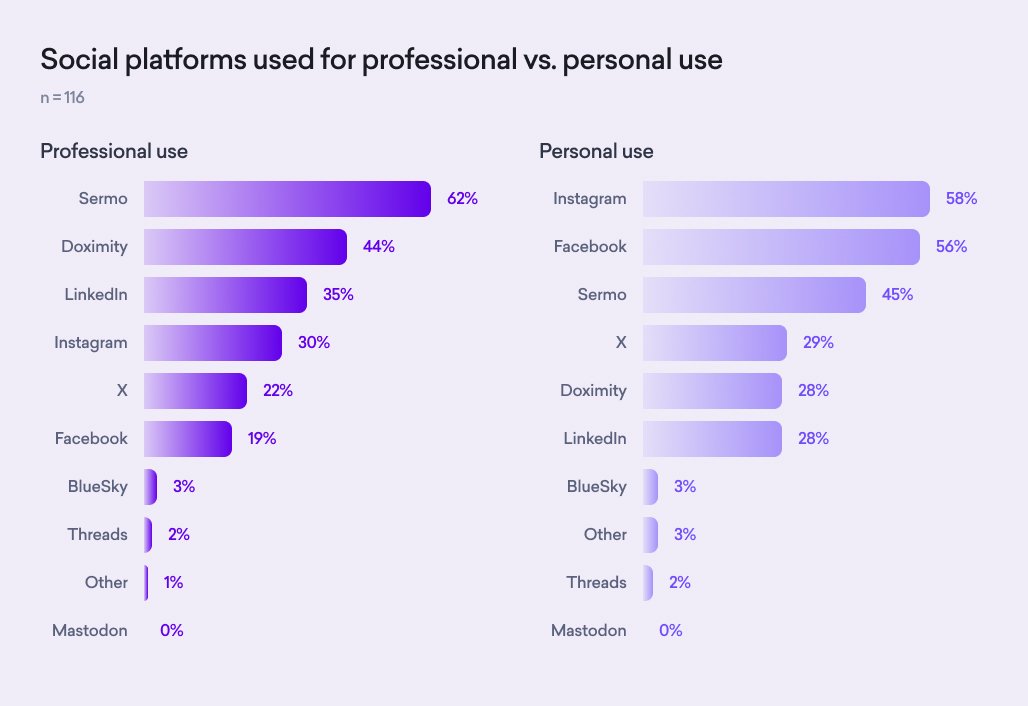
When using social media for work, physicians focus on information exchange: 33% use these platforms primarily to access clinical insights from peers, 26% participate in healthcare-related discussions, and 22% engage in professional networking.
The Value Proposition of HCP-Only Networks
When asked to rate the value of medical information on different social platform types, physicians gave a clear endorsement to HCP-only.
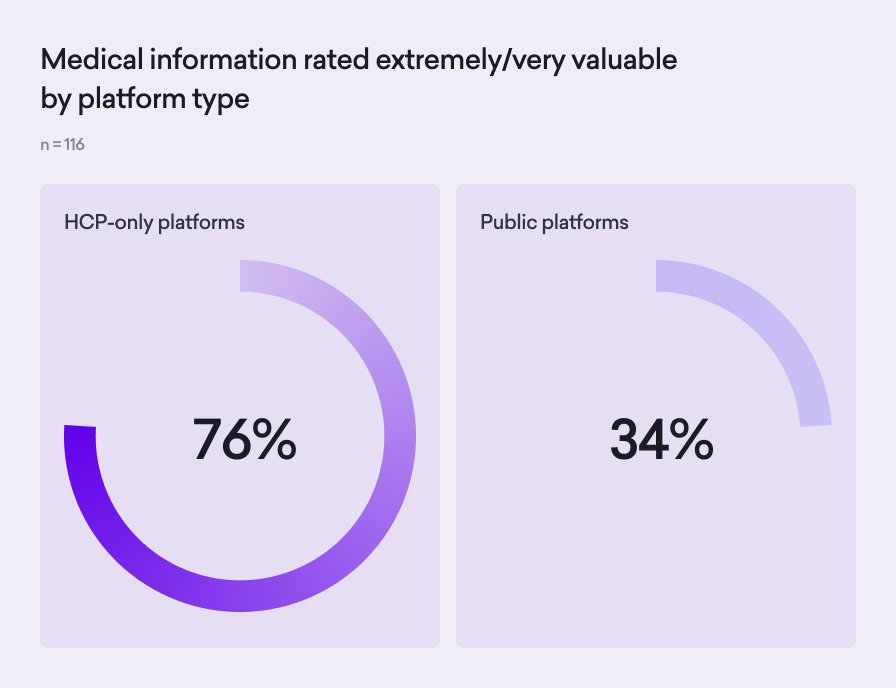
A staggering 76% of respondents rated the medical information available on these exclusive platforms as “Very valuable” (50%) or “Extremely valuable” (26%). In contrast, 34% of physicians rated the medical information on public platforms as “Very valuable” (23%) or “Extremely valuable” (11%).
This 42 percent difference in perceived value highlights a key distinction in how doctors rate the quality and usefulness of medical information across different digital spaces. The “why” behind this gap lies in the unique features and culture of HCP-only platforms, which are purpose-built for professional exchange and trusted information-sharing.
Why Physicians Choose Closed Communities
The decision to invest time in a specific social media platform is a calculated one for busy professionals. The study asked physicians what platform characteristics influence their choice, revealing a clear set of priorities. The top factor, cited by 61% of respondents, is the type of content shared — doctors gravitate toward platforms rich in clinical updates, case discussions, and relevant medical news.
Other key factors include:
- Specific Audience Type (47%): Physicians value platforms where they know they are interacting exclusively with other verified HCPs.
- Presence of Known Peers (43%): The ability to connect with trusted colleagues is a major draw.
- Overall Size of User Base (41%): A large, active community enhances the potential for networking and knowledge exchange.
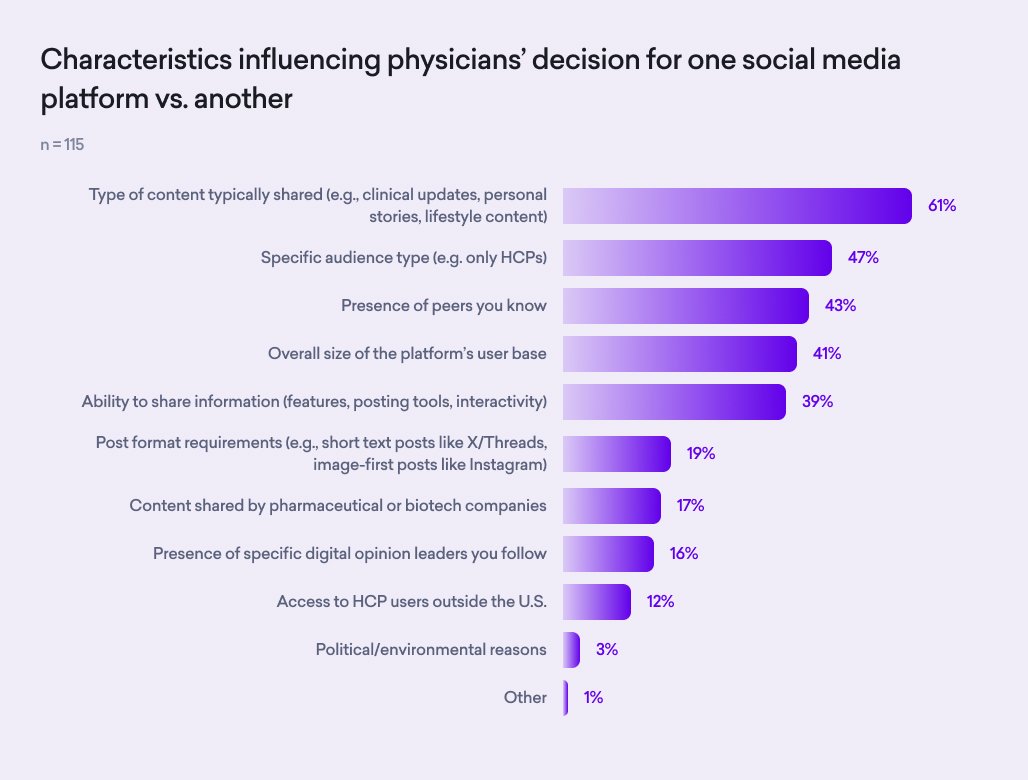
These preferences help explain the strong appeal of HCP-only networks. By design, these platforms focus on clinical information-sharing and a verified medical audience, delivering a trusted, relevant experience that public platforms often cannot match.
A Mindset Shift: The Professional Focus of HCP Platforms
Beyond platform features, there’s a distinct psychological shift when physicians move from a public social platform to an HCP-only one.
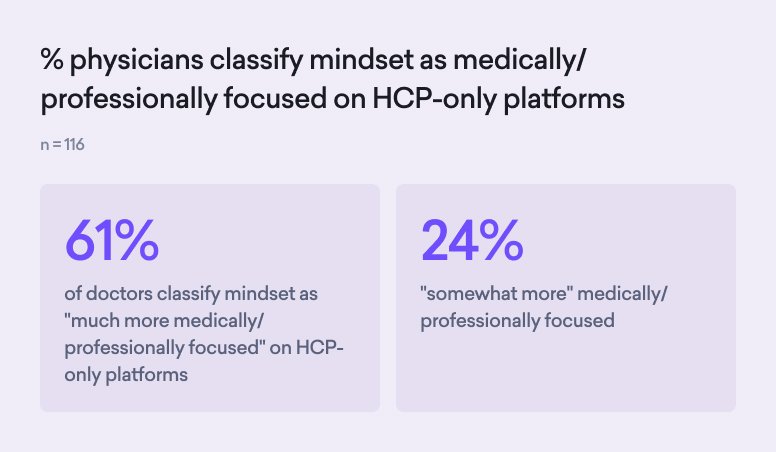
85% of physicians say their mindset shifts to being “much more” or “somewhat more” medically focused when engaging on HCP-only platforms. This distinction is critical for pharma marketers aiming to build awareness and influence prescribing behavior. Unlike public platforms—where clinical content must compete with personal updates, political debates, and viral distractions—HCP-only environments are designed for focused professional exchange.
In fact, 82% of physicians agree they can “focus on medical information without wading through unrelated noise” on these platforms. That clarity of context matters. A brand message positioned alongside a patient case study feels clinically relevant; the same message next to a vacation photo or newborn announcement likely won’t carry the same weight. By removing the clutter, HCP-only platforms create an environment where physicians can concentrate on what matters most—driving deeper engagement and sustained adoption.
Interestingly, physicians are also more actively engaged on social media for professional purposes than for personal use. When using social media professionally, 56% report frequently creating, sharing, or interacting with posts, compared with 49% for personal use. Likewise, fewer physicians limit themselves to just reading content on professional platforms (44%) versus personal use (51%).
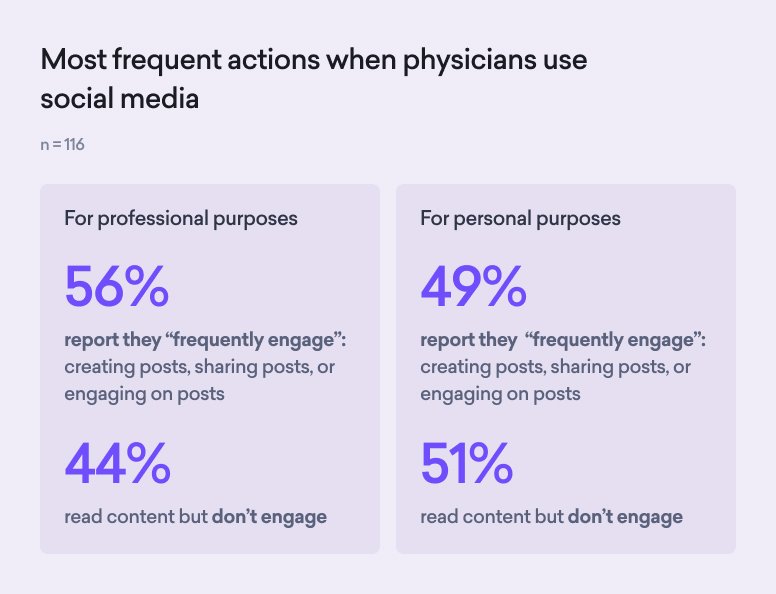
Trust, Safety, and the Depth of Clinical Conversation
The most compelling advantage of HCP-only platforms may lie in the concept of trust. Medicine is a field built on evidence, expertise, and confidential peer review. These principles translate directly to physicians’ online behavior.
The study found that 80% of physicians agree or strongly agree that they trust the medical information on HCP-only platforms more than what they see on public ones. This trust is foundational and stems from the fact that the community is comprised of verified peers, reducing the risk of encountering misinformation or unqualified opinions that often plague public forums.
This trust fosters a sense of security, encouraging a level of vulnerability and openness on HCP-only platforms that is essential for true professional growth.
- Deeper Conversations: 72% of physicians believe the most valuable clinical conversations happen on HCP-only platforms, not on public ones.
- Willingness to Share: 84% are more willing to share detailed cases or ask about tough clinical challenges.
- Authentic Connection: 85% feel that HCP-only platforms connect them with colleagues who truly understand the clinical challenges they face daily. n=116
Public platforms are great for broad networking and staying up-to-date on corporate happenings, but the data suggests they are not the best venue for the nuanced, challenging, and often sensitive medical discussions that drive clinical practice forward. 69% of physicians agreed with the statement that while public platforms are fine for networking, “real professional growth and clinical decision support happen on HCP-only platforms.”
This is where the true power of these networks lies: they recreate the collaborative and supportive environment of a hospital lounge or a medical conference, but on a global, asynchronous, and digital scale.
The Future of Medical Social Media
The digital landscape is ever-changing, and physicians are adaptable. When asked about their future plans, nearly half of the respondents (46%) said they “Maybe” would consider joining a new social media platform, with another 25% “Not sure” and 4% saying “Yes.” This openness to exploring new options indicates that the competition for physicians’ attention is ongoing.
However, the trends revealed in this study offer a clear roadmap for what doctors are looking for – specialized and trusted environments that prioritize high-quality clinical content and peer-to-peer connection. They seek platforms that filter out the noise and foster a sense of community and safety, enabling the deep and valuable conversations that are the lifeblood of medical progress.
While public platforms will continue to play an important role in medicine, the heart of professional medical discourse online is moving to dedicated, HCP-only spaces. For the modern physician, these platforms are not just a social network; they are an essential tool for continuing education, collaborative problem-solving, and staying connected to a global community of peers who “get it.”
Interested in learning more about HCP engagement on social? Reach out anytime to business@sermo.com or set up a demo here!

